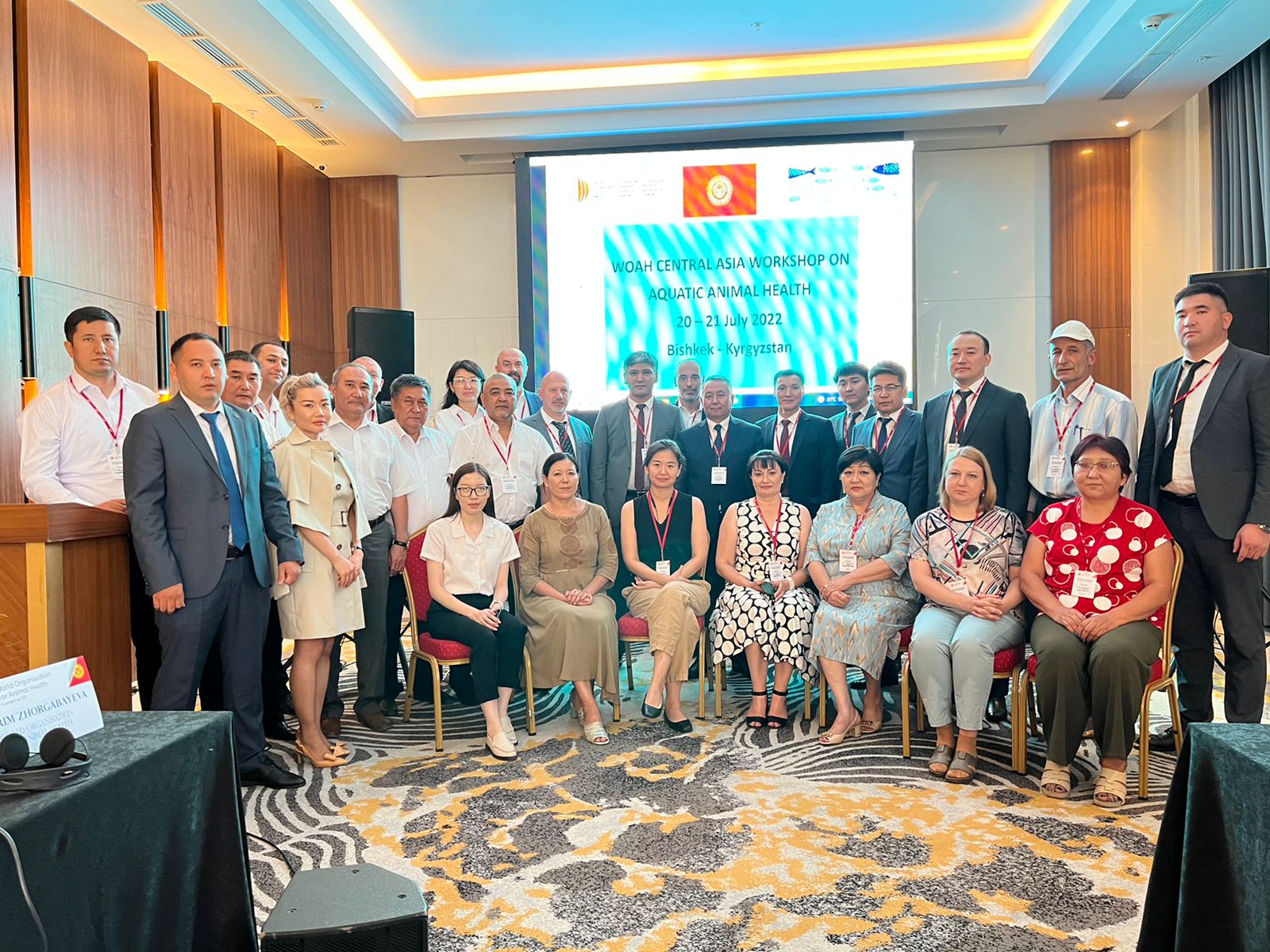The World Organisation for Animal Health Sub-Regional Representation for Central Asia, in the framework of Aquatic Animal Strategy 2021-2025, has organised a workshop on Aquatic Animal Health for Central Asian countries in Bishkek, Kyrgyzstan, with direct and online participation of representatives of Veterinary Services and Aquatic Animal Health Services, and specialised organisations from Kazakhstan, Kyrgyzstan, Tajikistan, Turkmenistan, and Uzbekistan, as well as experts in this field.
Fisheries and aquaculture support the livelihoods of nearly half a billion people worldwide. Aquaculture is becoming more widespread, providing opportunities for improved nutrition and poverty reduction. In Central Asia, there are great opportunities for development in this area.
Aquatic animal diseases are the most significant threat to production. The risk of disease outbreaks will increase as production increases, new species are domesticated, and trade expands. New diseases may also emerge that could have significant consequences and complicate aquatic animal breeding. In addition to bacterial and viral diseases that hamper aquaculture development, the focus is on parasitic diseases that can cause serious health problems for animals and humans.
The development of aquaculture production systems requires support for improvement in many sectors. The World Organisation for Animal Health’s Aquatic Animal Health Strategy 2021–2025 provides a framework for activities in this direction. Building the capacity of the veterinary and aquatic animal health systems to control fish diseases is an important step in development.
Our programs support the strengthening of aquatic animal health services in member countries and promote sustainable aquaculture development by increasing the productivity of the sector.
The workshop in Bishkek provided an opportunity for industry specialists to exchange information on the current situation with fish diseases in the region and identify relevant problems, as well as increase understanding of international aquatic animal health standards. During the meeting, participants gained more knowledge about the prevention, early detection, and control of aquatic animal diseases, as well as the interaction between aquatic animals and the environment in aquaculture conditions.
The workshop resulted in the development of recommendations to improve the aquatic animal health situation in the region through a lively discussion of working groups of specialists. Among other actions necessary to make progress in this direction, participants emphasized the following:
WOAH will remain at the disposal of animal health authorities and stakeholders in Member Countries to support the sustainable improvement of aquatic animal health by providing technical expertise, implementing strategies, and communication and knowledge sharing among professionals in this sector.
